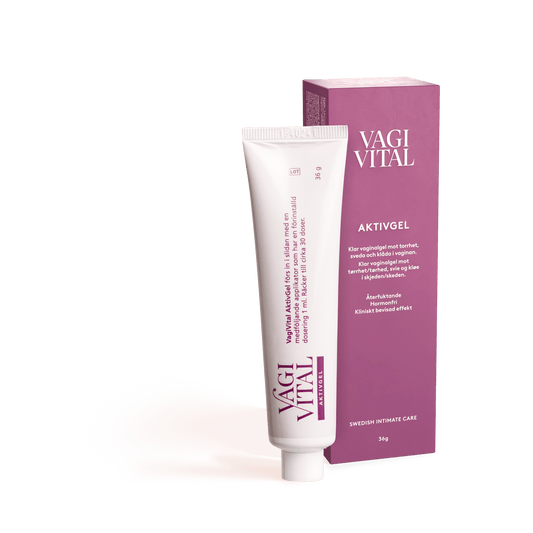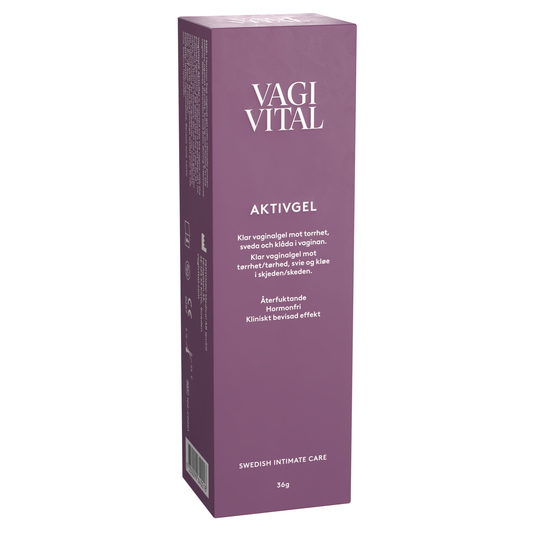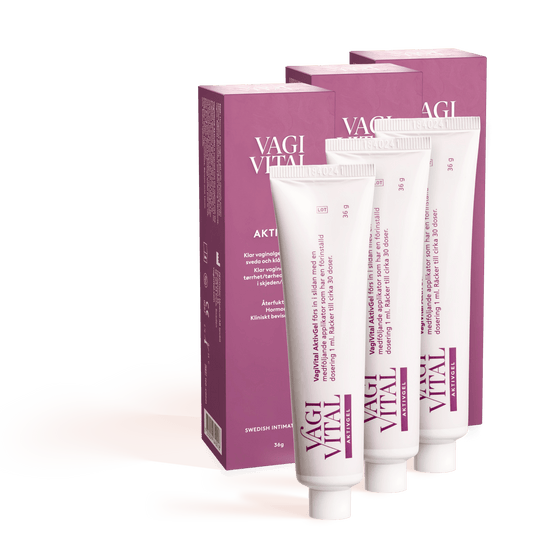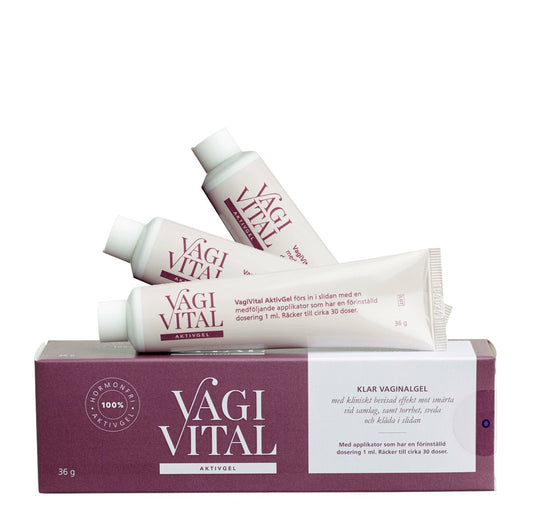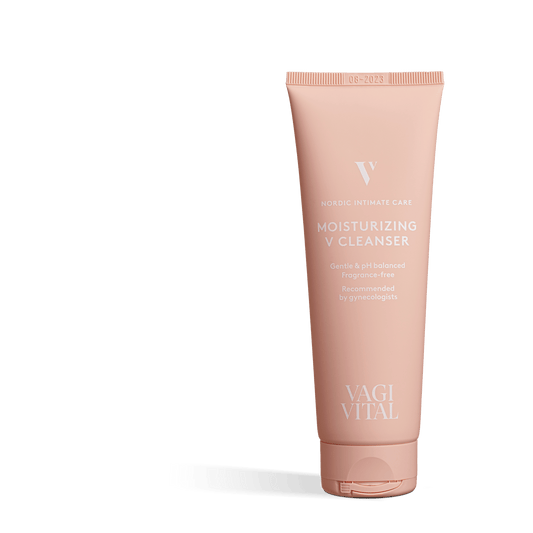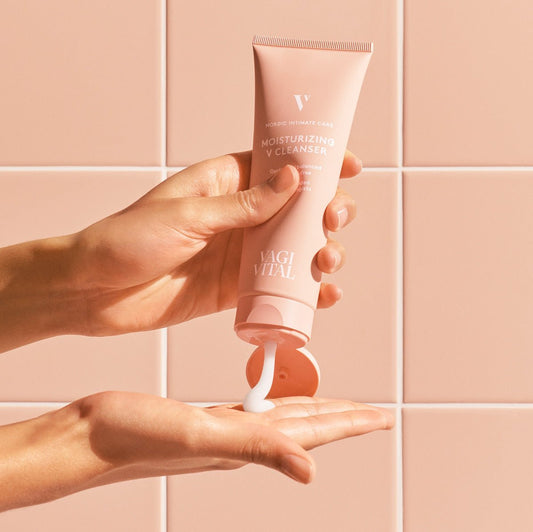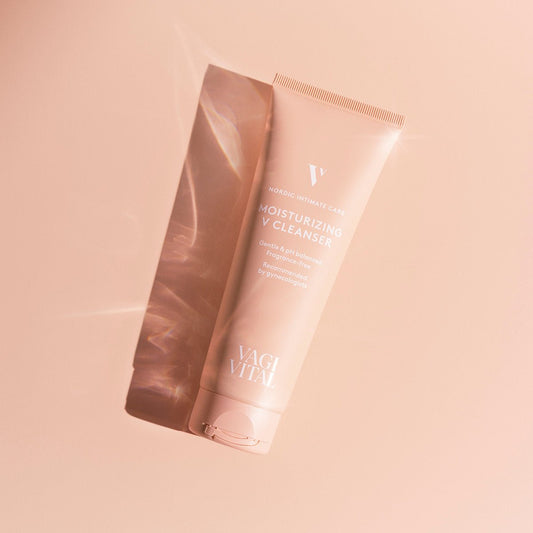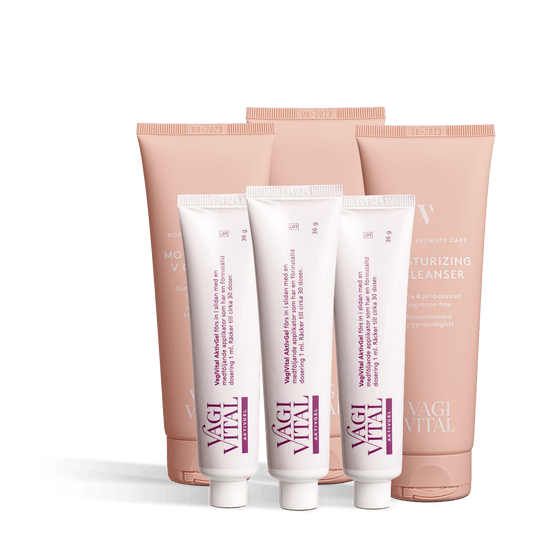Understanding bleeding during perimenopause & menopause
There are few things as wonderful as feeling the sun on your skin and putting on your bikini for a day at the beach. But just when you're ready to dive into the waves and enjoy the summer – yes, then your period suddenly shows up. Now? What? It isn’t time yet? It’s a worldly problem, absolutely, but still so frustrating. From having had a period as regular as the moon phases, I now never know when it will come. At 50 years old, my period can appear after anything from 12 days to 165 days. Sometimes it comes like a flood and sometimes just a few drops. Never knowing where you are in your menstrual cycle is at least frustrating, and with every bleed I think "maybe this is the last one?" But why does it happen like this? What causes bleeding in perimenopause and how should bleeding after menopause be interpreted when the period has already been gone for at least 12 months?
UNDERSTANDING BLEEDING DURING PERIMENOPAUSE AND MENOPAUSE
Perimenopause is the wonderful (read: crazy 😬) period before menopause when our hormones decide to have one last dance. During this time, the ovaries start producing less estrogen, which can make menstruation unpredictable. For some women, their period can be like a reliable old friend who shows up at set times, while for others (like me) it is more like a guest who arrives unexpectedly and stays a little too long or far too short.
WHAT HAPPENS IN THE BODY?
During perimenopause and menopause, the body undergoes major hormonal changes that affect the menstrual cycle. To understand why the bleeding becomes irregular, it is important to understand what happens with our hormones.
Hormonal changes
Estrogen and progesterone are two key hormones that regulate the menstrual cycle. During perimenopause, the ovaries begin to produce less of these hormones. Reduced estrogen production means the uterine lining (endometrium) does not build up in the same way as before, which can lead to irregular bleeding. This can result in shorter cycles where bleedings come more frequently or longer cycles where it takes longer between bleedings.
CAUSES OF SHORT MENSTRUAL CYCLES
🌸 Increased FSH level: To compensate for decreased estrogen production, the body increases the production of follicle-stimulating hormone (FSH). This can stimulate the ovaries to release an egg more often, leading to shorter menstrual cycles.
🌸 Faster follicular phase: The first part of the menstrual cycle (follicular phase) can become shorter due to changes in hormone balance, causing ovulation to occur earlier than usual.
CAUSES OF LONG MENSTRUAL CYCLES
🌸 Ovulation disorders: During perimenopause, ovulation can become irregular or absent in some months, which lengthens the cycle because the uterine lining continues to build up without being shed.
🌸 Low progesterone level: Without ovulation, less progesterone is produced, a hormone necessary to trigger menstruation. This can result in longer intervals between bleedings.
VARIATION IN BLEEDING PATTERNS
Hormonal fluctuations can cause the uterine lining to build up and be shed irregularly, resulting in varying amounts of bleeding – from heavy to light. If it can be any consolation, these changes are a perfectly normal part (albeit stressful) of the body's transition through perimenopause and menopause ❤️
WHAT CAN YOU DO?
🌸 Bleeding diary: Keeping a diary of your menstruations can help you see patterns and changes. This can also be invaluable to have during visits to your gynecologist.
🌸 Medical advice: If the bleeding becomes very heavy or prolonged, seek help from a gynecologist.
BLEEDING DURING MENOPAUSE & POSTMENOPAUSE
Menopause is defined as the time when you have not had a menstruation for at least 12 months. When this happens, we say goodbye to the monthly visits. But what happens if the bleeding returns after this period?
🌸 If you bleed after not having had a period for at least 12 months, it is important to contact a doctor to rule out any health problems. These bleedings can be due to benign conditions such as polyps or fibroids, but they can also be signs of more serious problems like endometrial cancer.
🌸 After menopause, the uterine lining becomes thinner due to low estrogen levels, which usually reduces the risk of bleeding. It is because of these low estrogen levels that many women during this phase experience vaginal dryness.
Hormone-free VagiVital AktivGel has been studied at Swedish university hospitals and moisturizes the driest mucous membranes in just 90 days.
SO WHY DOES IT HAPPEN LIKE THIS?
The short answer is hormones. Our bodies undergo a series of changes during perimenopause and menopause, which can make menstruation a real rollercoaster. But remember, you are not alone. Many of us go through the same thing and there is help and advice available. If you are somewhere in the sometimes hard-to-interpret land of Menopause, a first step can be to learn as much as you can about both perimenopause and menopause. Knowledge is power but all women are also unique❤️ Sometimes it can be difficult to interpret your own body and its signals. For example, it can be a challenge to understand if mood swings are due to PMS or caused by perimenopause. Or if you actually just have every right in the world to be angry, sad, or irritated. Mood and feelings, as said, are not always due to hormones 😊

Learn more and read about PMS or Perimenopause – how to tell them apart?
A first step to understand where you are in your hormonal journey can also be to do the Vagivital Menopause self-test which measures FSH (follicle-stimulating hormone) in the urine and gives you an answer immediately with 94% accuracy if you are in perimenopause.
NEW – VAGIVITAL LUBRICANT LAUNCHES THIS FALL
This fall we are launching our new lubricant, VagiVital ACTIVE GLIDE LUBRICANT! It is a moisturizing and water-based lubricant, specially developed for the vagina. It resembles natural vaginal secretions, is fragrance-free and perfume-free. Perfect for all women seeking increased pleasure. VagiVital ACTIVE GLIDE can be used with condoms and sex toys without damaging the sensitive surfaces in the genital area. Keep an eye out for the launch and give your sex life an extra boost ❤️
Enter your email address and receive an email when our lubricant is available to buy in our shop.

When your period next shows up without warning, maybe it can help to see it as a symbol of fertility and life? Instead of getting frustrated, I will try to welcome it – because every time could actually be the last 😊
/Fanny Falkman Grinndal
Business Manager Nordics
Peptonic Medical AB
fanny.falkman-grinndal@peptonicmedical.se
Recommended products for you
- Choosing a selection results in a full page refresh.
- Opens in a new window.



